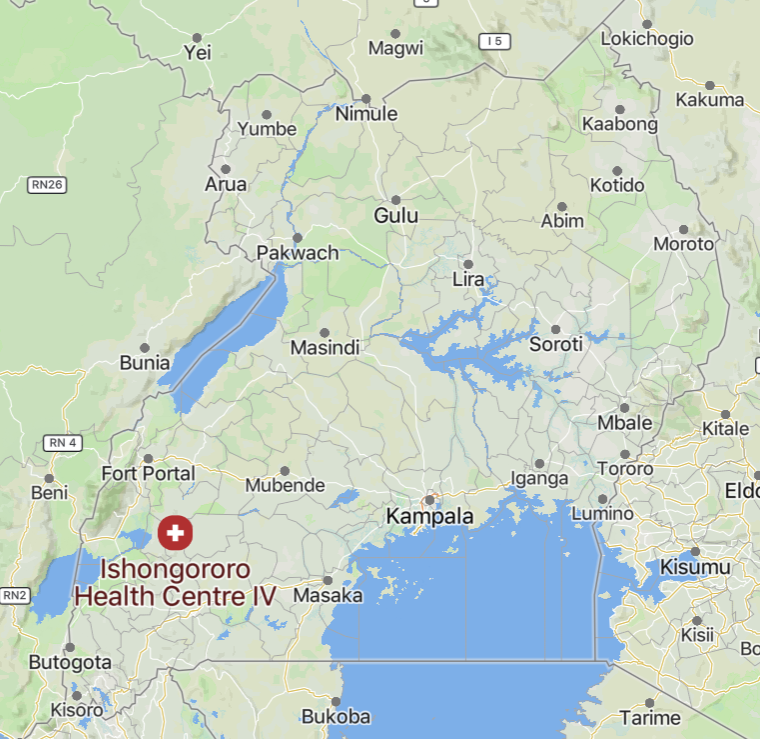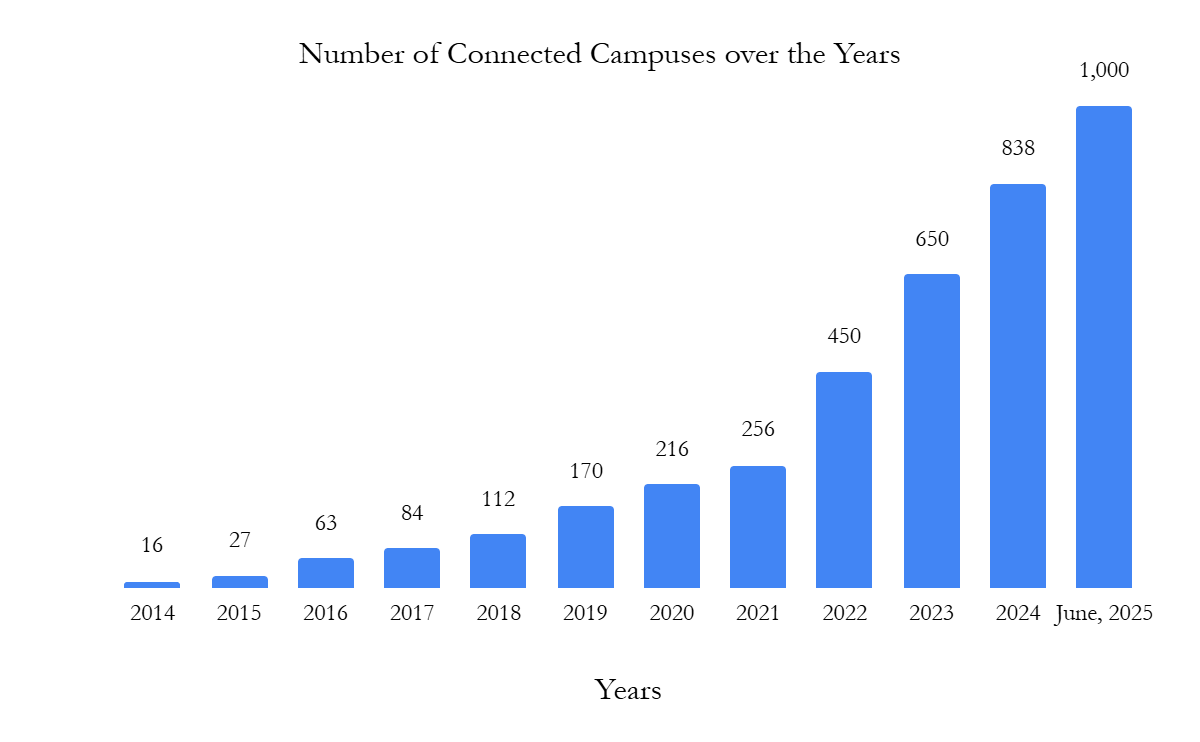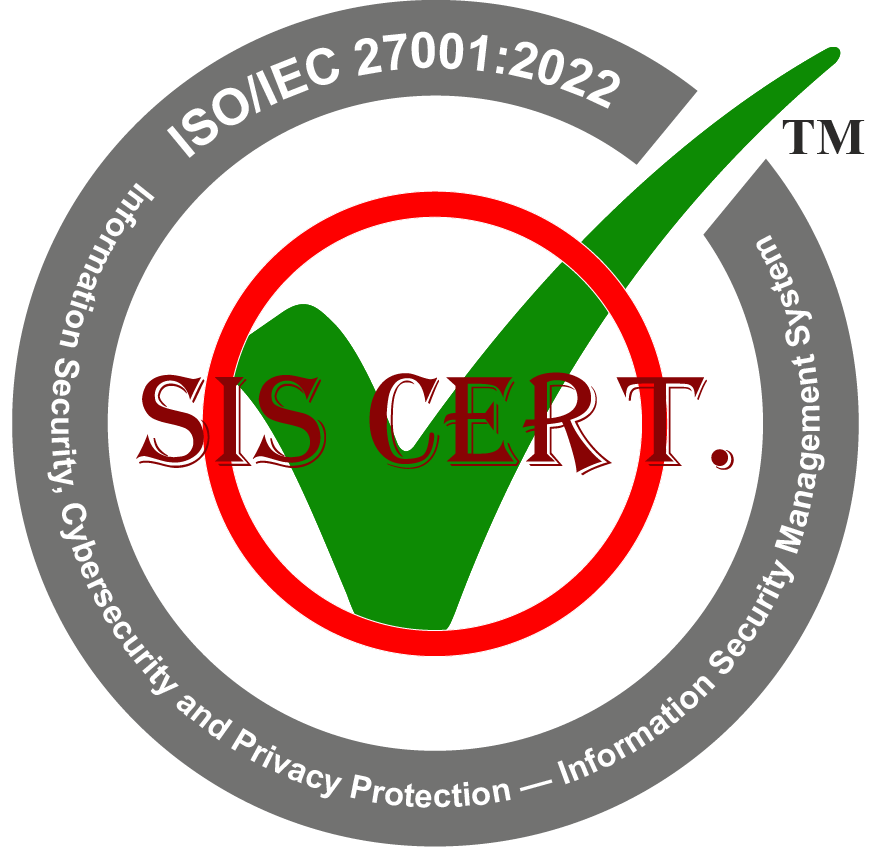On 25th June 2025, RENU connected Ishongororo Health Centre IV, making it the 1,000th campus to be connected to the RENU network. The health centre is a public health facility located in Ibanda District, 24.7 kilometres from the district headquarters and 332 kilometres from the capital city of Kampala.
Reliable connectivity and Internet access form the backbone of every digital system. In health and education, it enables real-time patient data sharing, digital learning platforms, virtual consultations, e-library access, remote monitoring, and collaboration across borders. According to the Ministry of Health, Uganda has over 6,000 health facilities, with more than 60% located in rural areas. Despite this wide coverage, the country’s health sector continues to face significant challenges, including unreliable electricity, Internet connectivity, and basic ICT infrastructure, factors that hinder effective service delivery, data management, and digital health innovation, especially regarding the lower-tier centres, such as Health Centre IIs, IIIs and IVs. Besides service delivery, it should be noted that these health centres play a critical role in research since they also act as data collection centres.

RENU has taken on this challenge head-on, delivering affordable, high-speed connectivity to institutions often overlooked. The 1,000 connected campuses represent public and private universities, research centres, Other Tertiary Institutions (OTIs), schools, hospitals, and health centres, many in remote regions where even mobile signals are faint. Through innovative solutions, RENU is laying the digital tracks for Uganda’s transformation, bringing the government’s Digital Transformation Roadmap to life, and unlocking inclusive access to e-services, digital tools, and innovation ecosystems. RENU’s goal has remained consistent – to improve the quality of education and research by equipping such institutions, especially those in underserved and hard-to-reach areas, with the tools they need to thrive in the digital age.
Ishongororo Health Centre IV is one of the hundreds of rural government-run health facilities connected to the RENU network. Empowering rural health facilities with affordable, reliable, and secure connectivity is one of the many commitments that RENU has made to ensure inclusivity and digital equity within the health and research sectors.
Support for Uganda’s Education Digital Agenda (2020/21–2024/25)
RENU’s efforts are aligned with the Ministry of Education and Sports’ Digital Agenda, which prioritises ICT-enabled teaching and learning to drive inclusive education outcomes. Initially, RENU was established to serve the research and education needs of universities and research organisations. Over the years, RENU has grown to serve other categories, including OTIs, schools and health facilities that are an integral part of the education and research ecosystem.
Through services such as eduroam, a free, secure Wi-Fi roaming platform, RENU has made it possible for students, staff and researchers to connect both on-campus, and off-campus (at over 600 hotspots) across the country. In 2024 alone, more than 81,000 unique users logged into eduroam over 57 million times, highlighting high demand for seamless and secure digital access.
Today, our infrastructure supports over 250,000 university students across the country, enabling equitable access to e-learning platforms, virtual classrooms, academic databases, and global collaboration tools, whether on campus or in remote, underserved communities.
A graph showing connected campuses over the years

Support for Uganda’s Health Information and Digital Strategic Plan (2020/21–2024/25)
RENU’s healthcare connectivity efforts directly support the Ministry of Health’s Health Information and Digital Strategic Plan, which seeks to improve data quality, reporting, and healthcare delivery through robust digital infrastructure. The centres, vital for HIV research, data collection, and primary care, previously operated without functional Internet. RENU delivered hybrid last-mile connectivity using fibre, microwave, Long Term Evolution (LTE), and Lite Dish Feed (LDF) signal boosters to overcome weak signal zones, even on Lake Victoria’s Kalangala Islands.
Today, over 300 health centres are online via the RENU network, enabling real-time Electronic Medical Records (EMRs), remote consultations, teletraining, and data sharing with national systems. This reliable connectivity is now foundational to Uganda’s digital health strategy, powering services once impossible in bandwidth-starved areas.
Alignment with the Sustainable Development Goals (SDGs)
SDG 3: Good Health and Well-being
Many of the health centres in the rural districts in Uganda have long operated without the connectivity necessary to optimise service delivery or contribute meaningfully to national and international health research. Therefore, the connection of rural health centres, such as Ishongororo Health Centre IV, marks a pivotal advancement in supporting universal health coverage and disease prevention. With access to reliable Internet, health workers can now use national medical databases, conduct remote consultations, update Electronic Medical Records (EMRs), and participate in online training and global health networks.
SDG 4: Quality Education
RENU has catalysed digital transformation in Uganda’s education sector through affordable ICT services, powering digital learning for students and teachers, and providing access to learning. The reduction in the unit cost of international bandwidth for our members, from as high as US$ 3,300 per Mbps per month in 2006, coupled with nationwide deployment of eduroam, means that students, researchers, and educators can now access global knowledge resources anywhere, anytime on and off-campus, hostels, airports, cafes, and even while traveling, facilitating more education and research outputs within the sector.
SDG 5: Gender Equality
RENU enables equitable access to digital tools, platforms, and resources needed for learning, research, and innovation. Through provision of affordable and reliable connectivity and services such as eduroam, free off-campus connectivity (Metro eduroam), eduroam on the Go, and web conferencing, RENU reduces traditional gender barriers in education and technology by empowering women and girls to access information and participate equally in digital spaces, including in STEM fields, online learning, and remote work. Through inclusive training programs, capacity building initiatives, and infrastructure support, RENU promotes diversity and nurtures the confidence of all individuals, regardless of gender to engage fully in the digital economy.
SDG 7: Affordable and Clean Energy
RENU is expanding affordable, reliable Internet access by deploying solar-powered routers, a sustainable solution that operates independently of the power grid. By harnessing Uganda’s abundant solar energy, these eco-friendly routers reduce reliance on fossil fuels and support climate-resilient digital infrastructure. This initiative not only advances connectivity in key sectors like education, healthcare, and agriculture, but also contributes to lowering greenhouse gas emissions.
SDG 9: Industry, Innovation, and Infrastructure
RENU’s infrastructure and solutions (last mile, Cloud, LoRaWAN, RENU Identity Federation, eduroam, Metro eduroam, and eduroam on the Go) enable secure, high-speed access to academic resources, on and off-campus, allowing researchers, to collaborate, access e-learning platforms, digital libraries, and research databases virtually anywhere. In addition, Campus Network as a Service (CNaaS) equips institutions with professionally managed networks, improving data flow, security, and network efficiency, key elements for supporting advanced research applications. Collectively, these innovations are strengthening Uganda’s research and education ecosystem, enabling institutions to operate at global standards and contribute meaningfully to knowledge production and innovation.
SDG 13: Climate Action
RENU adheres to the principle of infrastructure sharing, to significantly reduce environmental duplication and the carbon impact of physical deployments. Use of shared digital infrastructure, lowers the need for redundant network installations, contributing to resource conservation and reduced material waste. RENU’s approach exemplifies how digital infrastructure can be aligned with climate goals to build a sustainable, low-carbon society.
SDG 17: Partnerships for the Goals
RENU collaborates with government agencies and other development actors to deploy scalable digital solutions and strengthen institutional capacity to bridge access to information and research and education tools. A prime example is the ongoing collaboration with the Uganda Communications Commission (UCC), which enabled the connection of 200+ schools to reliable connectivity over the past few years. This partnership model demonstrates a clear path for expanding digital equity and invites further investment to accelerate progress in Uganda’s education and research sectors.
Looking Ahead
This 1,000 connected campuses milestone is not just a number; it is a declaration of intent. Each connected site represents a new opportunity for a student to learn, a researcher to collaborate, a doctor to consult, and a rural community to thrive. We remain committed to advancing research and education, recognizing that reliable connectivity and Internet access are the foundation of every digital system. Through continued innovation, RENU will ensure that every learner, educator, and healthcare provider, no matter where they are, has access to the digital tools they need to succeed.


